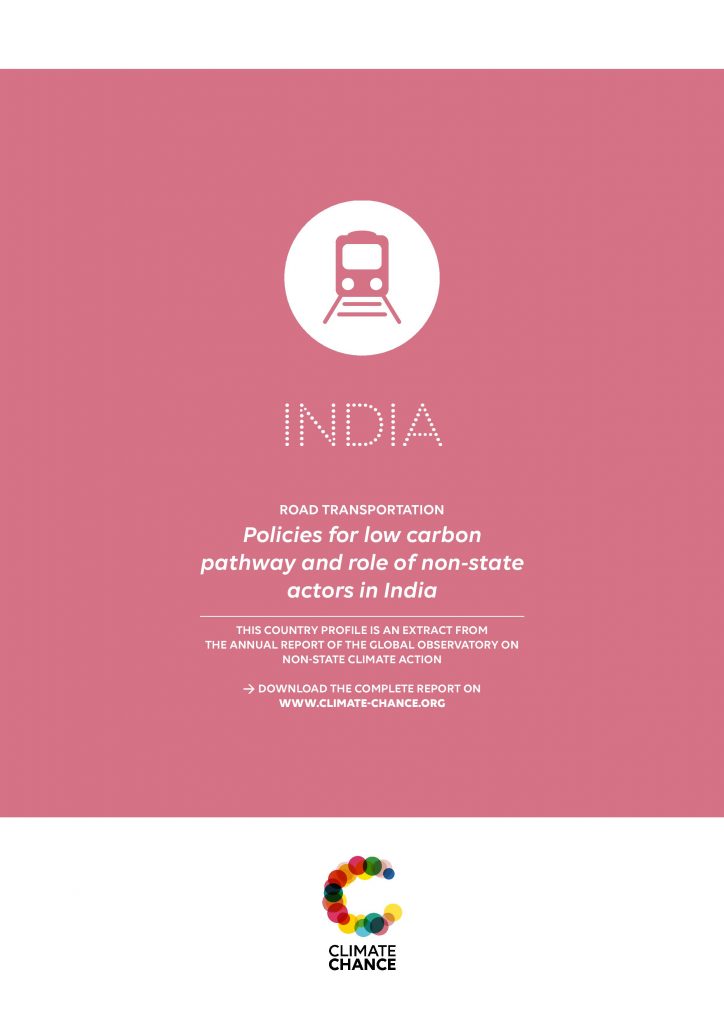India • Policies for low carbon pathway and the role of non-state actors
An efficient transport system is crucial for India as it witnesses rising demand for transport services and related infrastructure.

2018
India
Riya Rahiman and Aakansha Jain • The Energy and Resources Institute (TERI)
Introduction
An efficient transport system is crucial for India as it witnesses rising demand for transport services and related infrastructure. As mobility needs of the country are increasing, the subsequent impacts are also intensifying. With road transport sector becoming one of the major contributors towards GHG emissions, air pollution, congestion and several other negative externalities, various policy measures are being implemented to make the sector more efficient. Coordination and collaboration between government policies and actions of non-state actors in the form of awareness campaigns, capacity building initiatives and policy research can strengthen the implementation of these policy measures. To this end, the focus of this study lies on how efforts of non-state actors are aligned towards promoting low-carbon road transport sector in India. We will focus here only on normative and technical developments in road transport, bearing in mind that urban development and the development of public transport remain essential for the stabilization of emissions from the sector.
Contents
1 • Road tansport sector: an overview
2 • Transport demand: implication on energy and emissions
3 • Policy initiatives to decarbonize the road transport sector
• Electric Mobility
• Improved Fuel Technology Standards
• Move towards Alternative Fuels : Biofuel Policy
Conclusion
To counter the trend of increasing fuel consumption and rising emissions along with meeting the national commitments, a set of policy measures is being implemented by the Indian government in the transport sector. However, in order to ensure that these policy measures are effective in decarbonizing the road transport sector, it is important to build a holistic approach for confirming strong implementation and compliance of various policy goals. To this end, a multi-stakeholder approach which includes contribution and actions from civil society, corporates, think tanks and other public and private actors through decentralised action can play a crucial role in bringing down emissions from road transport sector.



